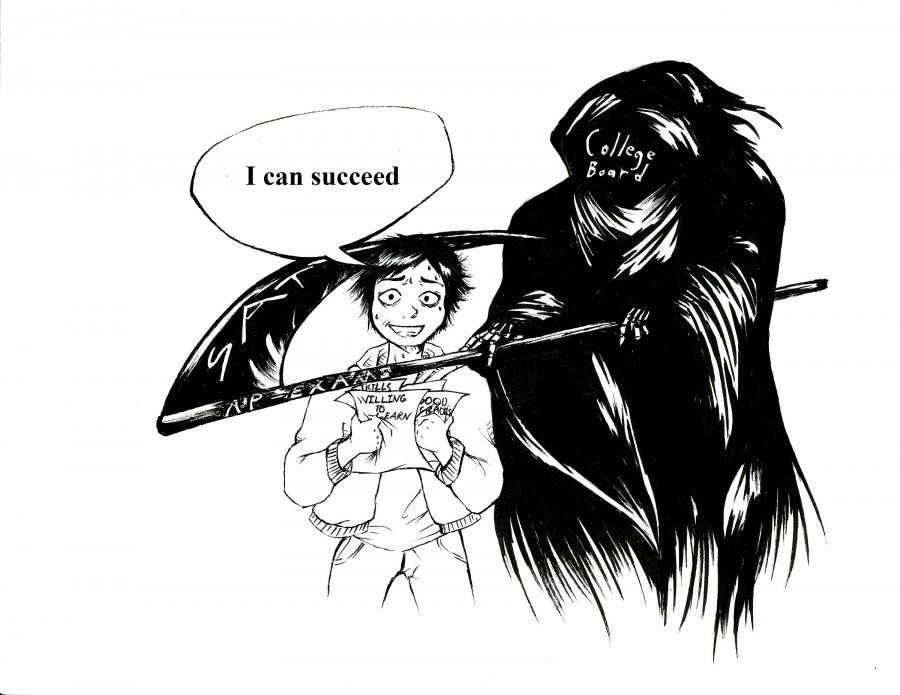Students are losing the will to test
June 3, 2015
Jennifer Sahakian stresses about standardized tests every year and finally feels the immense load during her junior year when the bulk of the tests are important.
“Tests are the sole reason I am stressed often,” Sahakian said. “I have test anxiety and this causes me to make small mistakes that cost me a high score.”
Anxiety comes from knowing that these examinations are weighted heavily on permanent records, college applications and in the classroom. Not every test is as important as the other. A chapter exam is not weighted the same as the SAT, for example.
However, each test is supposed to accurately measure student performance and because of the high demand of these accurate results, students get overwhelmed with tests.
The major test companies, such as the College Board, try to give students breaks to rest in between sessions. This does not always help because some students become anxious if they know another session is coming up.
Junior Jasmine Nuñez has to perform well on five major examinations, including Advanced Placement (AP) and SAT, for her to even be looked at by top universities.
“Tests are supposed to show how much we learned about the subject,” Nuñez said. “I feel that this overwhelming abundance of tests doesn’t accurately represent what we know because the test makers do not factor in how stressed we are by other tests.”
Tests are administered to measure how well a student mastered a particular topic. The atmosphere surrounding them causes unwanted “test anxiety,” according to the counseling service group at Kansas State University, that alters the results of the examinations.
One big problem with annual standardized assessments is that they are not only used to measure student performance, but also teacher performance. The No Child Left Behind Act uses test scores to determine how well a teacher prepared students for the years to follow.
This starts the trend: “teaching to the test,” which alters learning patterns and eventually leads to test anxiety as students gets older.
One alternative method of measuring student skill, suggested by National Public Radio, is stealth assessment. This practice involves having students study online while monitoring what questions they get right and wrong during practice. This measures how quickly a student learns material and removes standardized “sit-in” examinations.
Tests are not the best way to measure student performance, but they are relatively simple to give and grade. I believe that there are other ways to achieve the goals that tests are used for. One example is stealth assessment as stated before.
“Tests are not the best way to measure student performance because there are many glitches with the testing system,” Nuñez said. “I believe that tests should be administered without causing stress to the students so that the students could learn without the haunting thought of tests in their mind.”







